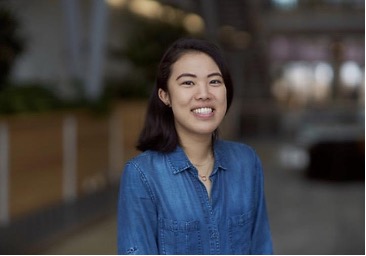#BUandBoston: Supporting Local Agencies Through Student Research
This post is part of our #BUandBoston series, highlighting the work and research of BU students, faculty, and staff throughout the City of Boston. Interested in having your Boston-related work featured? Tag us on Instagram or Twitter (@BUonCities) using the #BUandBoston or send us an email at ioc@bu.edu.
Students can assist agencies in the City of Boston and present their findings to officials through a project-based class, “Research for Environmental Agencies and Organizations.” After several years of leading directed study programs, Rick Reibstein, a Lecturer in the Department of Earth & Environment in the College of Arts & Sciences, developed the course in 2016 to civically engage students by supporting government officials, nonprofit professionals, and volunteers in achieving their environmental and public health missions. Students spend the semester working in teams to conduct research and develop policy proposals. Students can choose to work on tasks directly provided by agencies, identify new issues and offer solutions to officials, or continue projects initiated in previous semesters.

“It’s very open and students have a wide degree of choice in what they take on, but I provide them with a lot of options and connections that need their work,” Reibstein said. “When they get to meet people who are real experts and professionals in the field, that’s exciting for them.”
Alicia Zhang, a PhD student in Earth & Environment (GRS ‘25), took the class during summer 2021 and focused her research on community choice aggregation (CCA) in the City of Boston. CCA is a tool that lets cities purchase electricity in bulk for their residents, thus lowering costs and making it easier to choose cleaner energy sources. Zhang said she was interested in this project because the U.S. electricity system is segregated and often ineffective at supplying power in a just and climate resilient way.

Zhang spent the semester interviewing people involved in the implementation of CCA in Boston to assess the city’s promise that environmental justice would be a priority in the plan. She found that Boston has taken strides to design an equitable program by increasing community engagement and outreach and protecting customers against predatory competitive suppliers. The city is also strengthening and expanding energy efficiency initiatives to low-income residents and investing in future programs that can increase the renewable energy mix while keeping rates low, according to Zhang.
In September, Zhang and Reibstein presented before the National Environmental Justice Advisory Council to share their findings. Zhang said it was “an amazing experience” to have her research acknowledged on a national level, and the council recognized that more work must be done to improve energy democracy.
“Local government shapes our day-to-day lives in more ways than we’re aware,” said Zhang. “As cliché as it sounds, being involved in local government allows for your voice to be heard and can engender substantial changes. Local issues can set the precedent for political moves on the state and national level, which is what we are currently seeing with CCA programs.”
Over the past few years, students have also supported the Boston Public Health Commission (BPHC) by researching local issues at the intersection of environmental and human health. In 2017, a group of students assessed the current state of lead poisoning prevention in Boston, and as a result, a comprehensive Lead Fact Sheet was created for local distribution. Another group wrote a draft survey to determine whether medical providers in Boston were adequately investigating hazardous chemicals in home or work environments when patients presented symptoms that could be caused by toxic exposure. A third team in 2017 analyzed the toxicity of hair products designed for women of color to create a matrix on the availability of safer alternative products for the BPHC.
Beyond the City of Boston, students have also worked with the Massachusetts Department of Environmental Protection, presented their findings at the Massachusetts State House and various conferences, and supported agencies in other municipalities within the state and across the country.
“I think students in this class are on the cutting edge,” said Reibstein. “The ones who do well are the ones who work hard, stay in touch with me and the clients, and ask questions when they need to be asked. They gain the sense of being a professional.”
More information about past projects and the students who led them can be found on the course website. The course will be offered next in spring 2022.
Are you a BU faculty member or municipal government officials interested in experiential learning? Check out our MetroBridge Program!